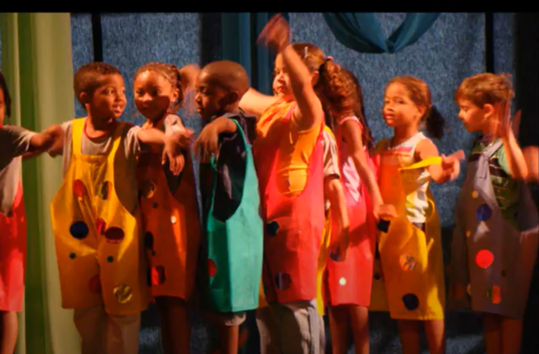daCi members Alba Pedreira Vieira, dance professor at Federal University of Viçosa, Brasil and Valéria Maria Chaves de Figueiredo, dance professor at Federal University of Goiás, Brasil pay tribute to Paulo Freire in our latest newslettter.
 This year we celebrate the centenary of Paulo Freire (19 September 1921 – 2 May 1997), a philosopher and educator whose thoughts and proposals in education, in general, have changed our approach to dance through emancipatory pedagogy. His ideas, discussed in many books and papers, on freedom, collaborative and community oriented curriculum, critical awareness, democratization of access to quality education and social justice have contributed to his progressive perspective, a point of view that favors the autonomy of the students (1998). For him, a praxis oriented by ethics and aesthetics favors decency and affectivity to walk hand in hand in the educational journey. As dancers, we may also want to build on Freire’s notion of cognitive critical thinking to one of ‘entire being thinking’ or ‘thought-full being’ (Vieira, 2007).
This year we celebrate the centenary of Paulo Freire (19 September 1921 – 2 May 1997), a philosopher and educator whose thoughts and proposals in education, in general, have changed our approach to dance through emancipatory pedagogy. His ideas, discussed in many books and papers, on freedom, collaborative and community oriented curriculum, critical awareness, democratization of access to quality education and social justice have contributed to his progressive perspective, a point of view that favors the autonomy of the students (1998). For him, a praxis oriented by ethics and aesthetics favors decency and affectivity to walk hand in hand in the educational journey. As dancers, we may also want to build on Freire’s notion of cognitive critical thinking to one of ‘entire being thinking’ or ‘thought-full being’ (Vieira, 2007).
As Brazilians, dance artists and educators, we invite our daCi colleagues around the world to also celebrate Dance as a great possibility to promote embodied dialogues that foster children and young peoples’ imagination and trust to building together a better world. Expanding his ideas on the need for a pedagogy of deep listening, let´s celebrate Freire’s important legacy by improvising together an anticolonial dance performance, oriented by our “responsibility of recreating ourselves in society” (Shor & Freire, 1987, p. 77)
Let´s create together new movements and gestures embodying the challenge of understanding and respecting each other, human and non human bodies, as well as living together in this so diverse and complex dancing planet called Earth.
At this moment of joy for Freire´s centenary, we also face a big challenge: the COVID-19 and its variants. His words from the book Pedagogy of Hope, encourage us at these difficult moments: Cultivate your own and your students’ dreams and curiosity in the educational process; embrace movement, change and the unpredicability inherent to life (and to dance). From Freire´s dialogical pedagogy, we hope “embodied dance education may continuously come to life as a transformative experience of being, making and doing […] of being aware of our incompleteness. Transformative dance is embodiment of one’s conscious inter-subjective intentionality, which embraces inner and outer life with love, joy and hope” (Vieira, 2007, p. 236).
Referências
Freire, P. (1970) Pedagogy of the oppressed. New York: The Seabury Press.Freire, P. (1973). Education for critical consciousness. New York: The Seabury Press.Freire, P. (1998). Pedagogy of freedom: Ethics, democracy and civic courage. Lanham: Rowman & Littlefield.Freire, P. (2002). Pedagogy of hope. New York: Continuum.Shor, I., & Freire, P. (1987). What is the “Dialogical Method” of Teaching? Journal of Education,169(3), 11–31.Vieira, A. P. (2007). The nature of pedagogical quality in higher dance education. Tese (PhD. em Dança). Philadelphia, PA: Temple University Philadelphia. Recuperado em 05 de dezembro de 2021 de https://www.academia.edu/28287828/The_Nature_of_Pedagogical_Quality_in_Higher_Dance_Education